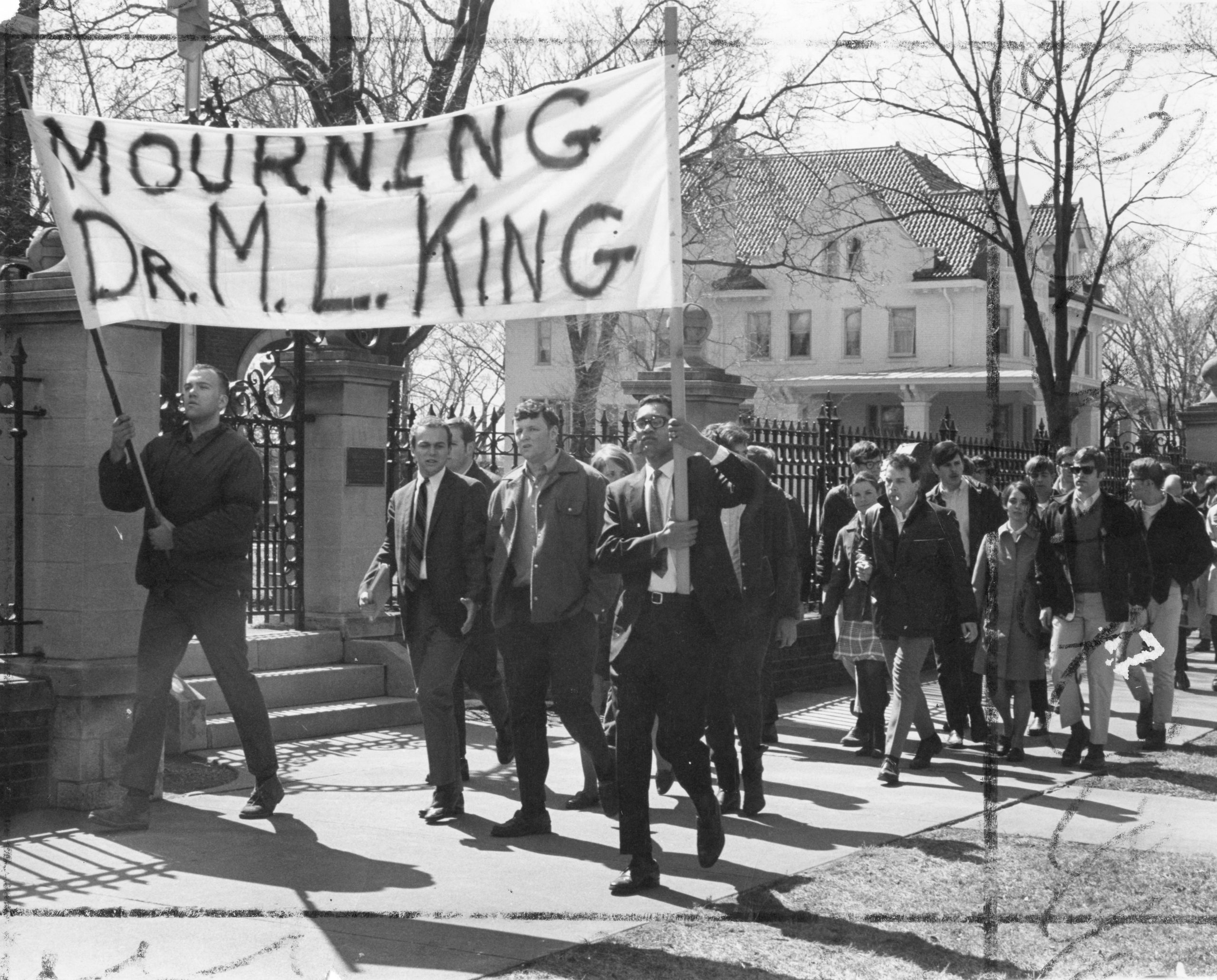Students, faculty, staff and community members gathered in Anderson Student Center on Friday for a conference, “1968 and the War for America’s Soul,” a gathering to remember and discuss the events of that year, the roles Minnesotans had in them and lessons learned to apply to today.
With midterms less than two weeks away, the College of Arts and Sciences event offered a timely opportunity for historical context around a time of great division in Minnesota and throughout the country.“I’m thankful we’re taking the time to look back 50 years,” President Julie Sullivan said in the conference’s opening remarks. “This is a time to think about these lessons, to be lifted by them, but also motivated to think how we will apply those lessons to the circumstances of today.”
Michael Schumacher, author of the recently published “The Contest: The 1968 Election and the War for America’s Soul,” provided the keynote address and talked about how, like 1968, there are deep divisions but reason for hope.
“We find out who we are as people with these divisions. This is our chance to define ourselves and who we are. The rest of the world right now doesn’t think a whole lot of us. We have a chance to do something right and hopefully find a way around these divisions. The divisions aren’t as severe as you might think,” Schumacher said. “The times change, but things stay the same. We’re still aiming for the prize, and in 2018, somehow, in some way, trying to have a unified country that makes sense.”
A panel including former U.S. Sen. David Durenberger; former attorney general Skip Humphrey, son of former Vice President Hubert Humphrey; and filmmaker Mary Beth Yarrow, Eugene McCarthy’s niece, held a panel discussion around the 1968 election.
“In the context of this wonderful book, when we look for the American soul, we need the large context and the context of this time,” Humphrey said. “We need to take the parallels and ask, ‘Who are we at this time?’”
Durenberger pointed to the 1960s as the “Republican heyday,” when a Republican governor and majority in the U.S. House and Senate helped turn a very progressive platform into law.
“You would be amazed to find out how Republicans saw the role of government at the state level. … Everything you learn now about the Republican Party is not what we had for a party then,” he said, pointing to the period as one of hope. “The last hope is today. The hope is going to have to come from people in both parties. My [Republican] party instituted this march to the right, and the Democratic Party responded by marching to the left, and left a lot of Americans in the middle trying to figure out if there is any hope.”
The event also featured a “Media Then and Now” session as professional and student journalists interviewed key Minnesota and national figures from 1968, and discussed how media coverage in 1968 compares to coverage in 2018.
College of Arts and Sciences Dean Yohuru Williams and School of Law Dean Rob Vischer helped lead a panel reflecting on civil rights movements in 1968 and 2018, and former St. Paul mayor Jim Scheibel moderated a panel on organization and action toward social change.
Yarrow also screened her documentary, “Alone in the Land of the Aardvarks,” about Minnesota U.S. Sen. Eugene McCarthy.
The event was held in tribute to Doug Hennes ’77, former vice president for government relations and special projects at St. Thomas, and Nick Coleman, former Star Tribune and Pioneer Press reporter and columnist, who both conceived the event and passed away earlier this year during its planning.







